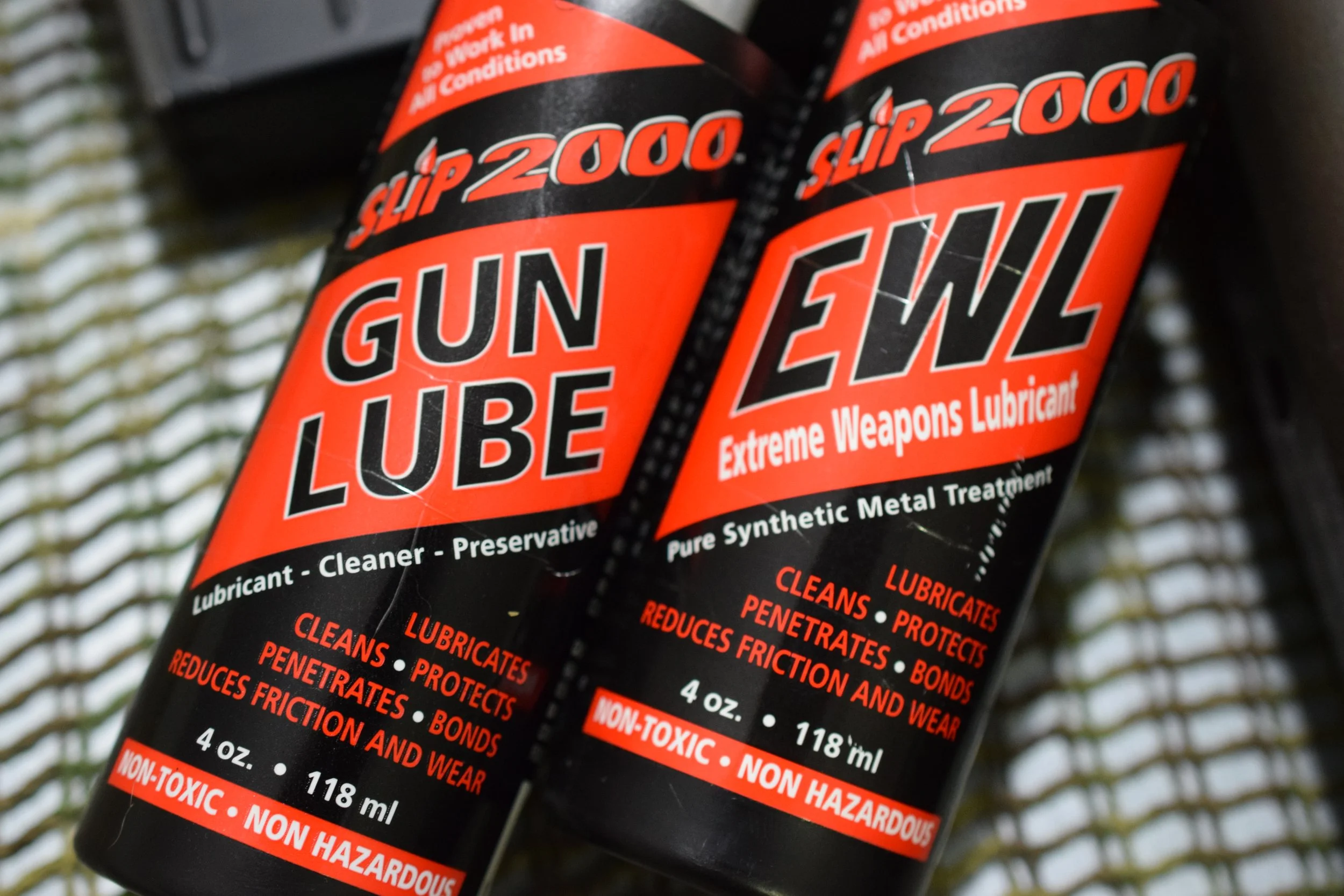MOTOR OIL IN FIREARMS
On social media and forums, you will find that there are a lot of people comparing motor oil to firearm-specific oils and CLPs, which is quite revealing to the individuals education and knowledge level as it applies to how lubricants work and interact with metals. The idea that motor oil is the same as gun oils is like saying that tofu is the same as bacon. Often times, people think that automotive stuff is going to be such a high caliber that it will work in firearms too. This is a flawed thinking, but it is a prevalent idea.
AN UNREALISTIC COMPARISON
Motor oil can not be compared to gun lubricants because it is meant to be used in HIGH VOLUMES in a CLOSED VESSEL. This lubricant is soaking the high RPM internals of the crankshaft, uses a filter, and needs to be changed out periodically. You use motor oil in quarts while you use gun lubricants in drops at a time.
Comparing motor oils to CLPs is silly because motor oil is designed for closed environments, and it shows when the oil is exposed. It grabs onto everything around it and doesn't want to let go. This is why the oil has to be cycled through a filter as the engine is running. Its lubricity properties are only relevant and effective in high volumes where the components are submerged. This is not possible for firearms. Even if you look at Lucas Gun Oil/CLP, they even stated that their motor oils do not do the trick for guns and that they had to make an oil from scratch that would actually do what it is supposed to do in a firearm.
Gun lubricants have to be able to maintain lubricity, even when fouled up by firing residue and foreign debris like sand and dirt. Motor oil can not handle this kind of abuse, and it is easily stripped and purged from the metal surfaces once too much heat or pressure/friction is applied. Also, motor oil is not a cleaning agent, so you cannot compare it to a CLP. If it was so great, why is it not what the military uses or what firearm manufacturers recommend? To take this a little further, why not use something like cooking oil or lard?
CLP
A CLP is a cleaner as well as a lubricant, which most of the times means that it has additives that allow it to penetrate under existing fouling and separate it from the metal surface. Aside from that, you will find that in my testing, CLP will actually prevent fouling from sticking, unlike motor oil which welcomes it and gums up. CLP is not designed to dissolve firing residue, but it does do a good job of being hyper-attracted to metal surfaces. Products like Breakfree CLP are petroleum based with additives to give it heat tolerance and make it thinner and make it last longer. One of the issues with petroleum based lubricants and CLP is that it WILL vape off over time, much like motor oil will.
Products like Slip 2000 offer a synthetic option that does not vape off easily and is chemically engineered to have a strong affinity for metal surfaces. It gets it’s cleaning characteristics by being hyper-attracted to the metal and refusing access to the metal by firing residue and debris. When you soak the firing residue with this product and scrub away the residue, you will basically be washing away the residue while still conditioning the metal with the CLP, instead of stripping all the lubricating properties away with an aggressive cleaner. One significant advantage of using a synthetic lubricant is its non-toxic nature. Additionally, when exposed to the high temperatures generated by heavy shooting, it burns off cleanly and does not produce harmful or toxic fumes, making it a safer choice for regular use in firearm maintenance and performance.
PREPPING
I constantly hear people saying that they use motor oil for their guns because at least it will be there when things go bad and war breaks out. Like all the lubricants for your guns will just disappear or something. That is about as logical as saying that you will only carry a sharp stick or a rock because at least there will be plenty of those around when things go to hell. I have cleaned so many guns with my single 4 oz bottle of SLIP2000 Gun Lube and still have half of my 4oz bottle left. With CLP, a little bit goes a long way, and I still have 1/4 of a gallon of Break-Free CLP after 9 years of using it on guns and everything.
Plus, let us use our thinking caps for a second. How many times do you think you will be going out and practicing shooting if things were really to go to hell in a handbag? Even if things did go bad, wouldn't you prepare by buying appropriate quantities of items as you do with other stuff as well, like ammo, food, and water? TP? Or are you also training your body to absorb the sun rays, eat dirt, drink your own piss, and wipe with Poison Oak to prepare for the impending doom?
WRAPUP
Motor oil is specifically formulated for the lubrication and cooling of internal combustion engines, containing additives designed to handle high temperatures and pressures found in automotive environments. It is not suitable for use in firearms because it lacks the appropriate viscosity, cleaning properties, and protective qualities needed to ensure reliable operation and prevent corrosion within a firearm’s barrel and moving parts. Using motor oil in firearms can lead to improper lubrication, accumulation of residues, and potential damage or malfunction, making it essential to use oils and lubricants designed explicitly for firearms maintenance.

